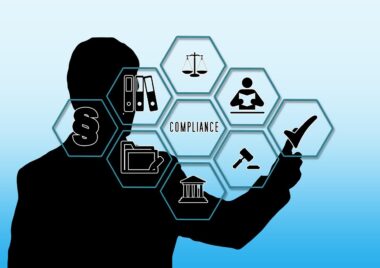The Role of Audits in Ensuring Regulatory Compliance
In the complex landscape of financial markets, audits play a crucial role in maintaining regulatory compliance. These assessments provide transparency and reinforce investor confidence by ensuring that organizations adhere to established laws and regulations. Regulatory frameworks, like the Sarbanes-Oxley Act in the U.S., mandate regular audits for public companies to prevent fraudulent reporting. Auditors independently evaluate a company’s financial statements and internal controls to confirm accuracy and integrity. The audit process helps identify potential weaknesses in compliance mechanisms, allowing firms to rectify issues before they escalate into significant problems. Furthermore, auditors often provide valuable insights that can lead to more efficient operations. These efficiencies can manifest as lower costs and improved resource allocation, ultimately benefiting stakeholders. By establishing trust, audits not only safeguard the interests of investors but also contribute to the overall stability of financial markets. A strong auditing process empowers organizations to navigate the regulatory environment effectively. Hence, engaging reliable auditors is paramount for firms aiming to foster compliance, transparency, and ultimately, long-term success in an ever-evolving marketplace.
Compliance with regulations is not merely a checkbox exercise; it necessitates a thorough understanding of the specific rules that govern financial markets. This intricate landscape comprises numerous layers of oversight, with agencies such as the Securities and Exchange Commission (SEC) playing pivotal roles. Audits serve as a rigorous method to ascertain that companies adhere to these complex regulations. Furthermore, financial institutions often deal with various local and international regulatory bodies, which can complicate their compliance efforts. Auditors are equipped to help navigate this regulatory maze, ensuring every applicable rule is met. They examine adherence to processes, financial reporting accuracy, and compliance with relevant laws, identifying discrepancies that could invite scrutiny from regulators. The importance of such audits cannot be overstated, especially as penalties for non-compliance can be severe. Companies face not only financial repercussions but also reputational damage, which can affect customer trust and investor relations. As such, systematic audits and compliance reviews are essential components that underpin the integrity of the entire financial system, fostering a culture of ethical behavior and accountability.
Key Benefits of Regular Audits
Beyond regulatory compliance, audits offer a myriad of benefits that enhance an organization’s operational efficacy. Firstly, audits provide critical insights into financial health and operational performance, enabling management to make informed strategic decisions. Through evaluations of internal controls, they help identify inefficiencies that can be rectified. This can directly lead to cost savings and improved profitability margins for the company. Furthermore, audits promote a culture of accountability among employees, as regular examinations encourage adherence to policies and ethical standards. This increased level of scrutiny can enhance overall workforce performance and morale. Regular audits also mitigate the risks of fraud and mismanagement by acting as a deterrent against internal misconduct. The presence of auditors encourages ethical behavior and helps preserve the company’s reputation. Additionally, consistent auditing can help organizations prepare for unexpected external examinations by regulators. By proactively identifying areas for improvement, companies can address issues before they escalate. Ultimately, the benefits derived from audits go beyond mere compliance; they pave the way for enhanced operational resilience and foster trust among investors and customers.
Another critical aspect of audits relates to the role of technology in enhancing compliance capabilities. With advancements in data analytics and auditing tools, the audit process has evolved significantly over the years. Modern audits often leverage software solutions that facilitate real-time monitoring of financial transactions, flagging inconsistencies almost instantaneously. This shift toward tech-driven audits not only increases efficiency but also improves accuracy. Automated systems can analyze vast amounts of data far faster than traditional methods, allowing for comprehensive evaluations with minimal human intervention. However, while technology can enhance the auditing process, it also necessitates a skilled workforce capable of interpreting the data and implementing findings effectively. Companies must ensure their audit teams are educated and trained in using the latest technologies in the field. As the regulatory landscape continues to evolve, integrating technology into audit frameworks becomes increasingly crucial in addressing compliance challenges. Organizations that effectively harness these technological advancements are better positioned to meet regulatory expectations while simultaneously driving their business growth forward.
The Interaction of Audits and Risk Management
Audits are inherently linked to risk management strategies in financial institutions, playing an integral role in identifying and mitigating potential risks. One of the key purposes of an audit is to evaluate the effectiveness of a company’s risk management processes. An effective audit can uncover areas where risks have not been adequately addressed, allowing firms to strengthen their defenses against financial, operational, and reputational threats. By analyzing risk assessment frameworks, auditors provide valuable recommendations that help improve governance practices. Integrating audits into risk management helps create a holistic view of an organization’s vulnerabilities. This synergy enables companies to not only comply with regulatory requirements but also enhance overall resilience against uncertainties. Furthermore, risk management frameworks that include regular audits instill confidence in stakeholders and regulators alike. They demonstrate a proactive approach to identifying potential vulnerabilities before they can evolve into major issues. As financial markets grow increasingly complex, the interplay between audits and risk management becomes more critical, ensuring that organizations can sustain compliance and guard against emerging threats effectively.
The integration of audits into corporate governance frameworks is essential for fostering regulatory compliance and enhancing accountability. Effective governance structures ensure that organizations adhere to established policies while also maintaining ethical standards. Auditors offer an objective lens that evaluates the performance of governance mechanisms, ensuring they operate efficiently and effectively. In addition to assessing financial practices, auditors examine how well organizations adhere to internal policies and industry regulations, holding management accountable for their actions. A culture of compliance rooted in strong governance practices not only mitigates risks but also encourages proactive engagement with regulatory frameworks. Furthermore, robust governance frameworks supported by diligent audits signal to investors and the public that a company is committed to transparency and ethical behavior. This commitment is increasingly essential in today’s regulatory landscape, as stakeholders demand a higher level of corporate accountability. In turn, organizations that successfully integrate audits into governance strategies can enhance their reputation, improve stakeholder trust, and ultimately achieve sustainable success in the financial markets. Such practices demonstrate that they are not merely meeting regulatory requirements but are genuinely committed to ethical operations.
Conclusion: The Imperative of Auditing
In conclusion, audits are integral to ensuring regulatory compliance in the multifaceted world of financial markets. They not only uphold transparency and integrity but also cultivate a culture of responsibility and ethical behavior. Regular audits help organizations navigate the complex regulatory landscape effectively, while providing invaluable insights that contribute to better decision-making and strategic planning. By identifying potential weaknesses, audits enhance compliance processes, helping organizations fend off regulatory scrutiny and potential penalties. Moreover, the relationship between audits and risk management underscores the importance of a proactive approach. Companies that embrace thorough auditing processes can strengthen their overall governance structures, instilling confidence among stakeholders. As regulations evolve, the role of audits will only become more significant in maintaining compliance and keeping pace with changing requirements. Ultimately, organizations that prioritize audits reflect their commitment to responsible practices, contributing not just to their success, but also to the overall health of the financial markets. With audits, financial institutions position themselves as trustworthy entities that uphold the principles of transparency and accountability, fostering a more robust economic environment.






